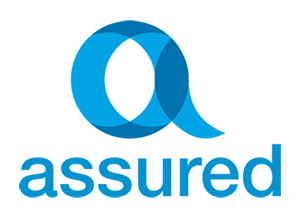Traps for young players
All investments involve risks, and property is no different. Gearing increases risk. Increased risk can result in increased losses. In this section we look at some of the key drawbacks of investing in property – together with ways to overcome these risks.
High purchase costs
When it comes to purchasing property – whether as an owner occupier or as an investor – buyers face a range of up-front costs. It makes good money sense to build these costs into your investment budget. Some of the key expenses are listed below:
Stamp duty
Stamp duty is a state government charge payable both on the purchase price of a property. The amount payable varies between locations. Please note, the cost of stamp duty is added to the capital value of your property, so it will reduce the value of any capital gains tax you may pay on any profit made on the sale of the property.
Click here to calculate the stamp duty payable in your state with our online stamp duty calculator
Lenders Mortgage Insurance
If you borrow more than 80% of the value of a property or if you have a self certified loan, you will generally be asked to pay Lenders Mortgage Insurance (LMI). This involves paying a one-off premium, though this type of cover protects the lender (not you, the investor) in the event that the property is sold and there is residual debt.
Miscellaneous costs
Purchasing a property involves other additional costs, which are listed below. One advantage of purchasing property as an investor is that many of these costs can be used to reduce the taxable income generated by the property. For example, borrowing costs can be written off (claimed as a tax deduction) over a period of five years. Other costs, like legal fees, are added to the cost of the property and used to reduce the tax you may pay on any capital gains.
- Borrowing costs
- Loan application fee
- Lender’s valuation fee
- Lender’s legal fees
- Pest and building inspections
- Legal fees (also known as ‘conveyancing’ fees)
Holding onto your investment for the long term is a useful way to ensure growth in the property’s value more than compensates for these costs.
Lack of access to your cash
Property is a non liquid asset, meaning it can take a while to access the funds tied up in your asset. To reduce this downside, always aim to have a spare pool of cash on hand for emergencies.
Additional Risks
Loss of rent through periods of vacancy
Manage this risk by thoroughly researching the market to determine that your property offers broad tenant appeal. Seeking the opinion of property experts will help ensure the rent you are asking is fair market value.
Exposure to rising interest rates
Always allow for the possibility of higher rates and higher repayments when determining how much you can comfortably pay for an investment property. If rate rises would be a serious problem, think about a fixed rate loan.
Exposure to property market downturns
All asset classes move in cycles, this is why property is generally recommended as a long term investment. By holding onto your asset for longer period of time you should smooth out the effects of any property market highs and lows.
Encounters with ‘problem’ tenants
The vast majority of tenancies run smoothly, however you can reduce the odds of encountering a problem tenant by using a property manager who thoroughly screens prospective tenants and maintains a regular program of property inspections. It’s also recommended and in some cases a legal requirement to take out landlord insurance for cover against damage or loss of rent through tenant disputes.
While it is important to be aware of these downsides, it is also worth pointing out that the vast majority of property investors enjoy strong returns, trouble-free tenants and a regular source of rental income. The key to this sort of success is to do some homework. The following sections are designed to help you know what to look for in a residential investment property.
If you’d like to talk to one of our experienced home loan consultants to assess what your investment home loan options are,



